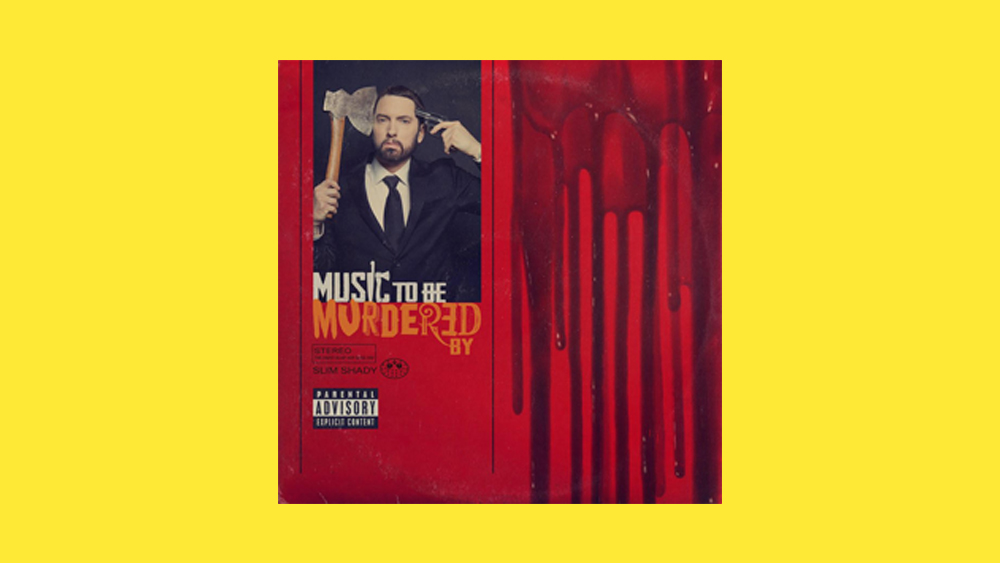Eminem’s ‘Music to Be Murdered By’: Album Review
By Jemayel Khawaja
LOS ANGELES (Variety.com) – Eminem’s surprise album release may bear the Hitchcock-referencing title “
Music to Be Murdered By,” but, yes, as you’d expect,
“Music to Murder To”
might be a more apt description. The 20-track LP, his tenth since soundtracking the turn of the millennium with 1999’s “
The Slim Shady LP,”
finds the Detroit rap legend in an alternately rancorous and pensive mood while showcasing his still obliterative rhyming skills, penchant for controversy and even a provocative turn of questionably executed advocacy for gun safety.
Featuring everyone from Q-Tip to Ed Sheeran, Anderson .Paak and the gone-too-soon emo-rap icon Juice Wrld, the album poses the question: When you’ve been raging against the world for a half-century, is there anything left unscathed? takes listeners on a tour of gripes familiar and occasionally new, ranging in theme from domestic abuse to copious opiate use, various rap feuds, staying culturally relevant, euthanized childhood pets and a preoccupation with mass shootings.
Although Eminem’s impish affectation has been replaced over time with a far more grouchy demeanor, don’t let the Hitchcock references, dad beard or Simon and Garfunkel samples fool you with illusions of maturity or subtlety. He wants you to know that he very much still does
not
give a f—, as promised way back in ‘99. Some of Eminem’s references in his diss-topian rhymes — JonBenet Ramsey and Ayatollah Khomeini, for example — may have been best left in the last century, but it’s his commentary on a far more persistent phenomenon that has the Internet ablaze.
Most of the early attention on the record has been on the controversial video for the single “Darkness,” a “Stan”-esque dirge that places Em in the shoes of the 2017 Las Vegas massacre shooter. The track intertwines Eminem’s own struggles with alcohol, pharmaceuticals, anxiety and depression with the final moments of Stephen Paddock’s life, a macabre blur of semiautomatic weapons, booze and a blood-soaked hotel room spliced with moody shots of Eminem pacing around a blue-tinged minimalist set.
As the protagonist un-hoods, revealing not Eminem but a Paddock lookalike, he rains machine gun fire down on the Strip below before shooting himself in the mouth. It’s a bleak and startling affair, arresting in its sheer lack of subtlety and grim shock factor all familiar Eminem tropes, just without any semblance of his usual humor. The video fades with clips of media coverage of mass shootings forming the shape of the contiguous United States and a public service announcement: “Make Your Voice Heard and Help Change Gun Laws in America.”
Many have lauded the rap veteran for the video’s political message. It’s a sign of the alternate reality we have warped into that Eminem — the lovable scamp who made his career motor-mouthing fantasies of murdering his ex-wife, shooting up clubs and assaulting strippers — is now pitching gun safety legislation and get-out-the-vote drives. “Darkness” is wedged between tracks that gleefully quip about the Manchester Arena and Columbine shootings, so the continuity of messaging barely lasts a couple minutes. Even in this post-truth age, the lack of accountability is galling. But this is where we find ourselves. “This is America,” it ain’t, but we’ll take our advocates where we can get ‘em.
Eminem has always used imagery of violence and guns, even if under the guise of extremist satire, to sell millions of records that have perpetuated a culture in which gun violence is normalized. Depending on your perspective, that makes his turn on “Darkness” either all the more valiant or deeply hypocritical and exploitative. If it makes even one individual vote or one middle American angry boy consider mental health and gun safety in a different way, do we join the chorus of consternated applause?
The album has its less topical highlights. “Godzilla” and “Yah Yah” are memorable uptempo bangers with notable featured performances from Juice Wrld and the Roots’ Black Thought, respectively, that show Eminem’s often-astounding flow still carries water over various niches of hip-hop. Longtime collaborator Royce Da 5’9” brings a fresh energy to all three tracks on which he appears. And after doffing his baseball cap to Tyler, the Creator on “No Regrets” while highlighting lesbian rapper Young MA on “Unaccommodating,” it seems that Eminem’s rampant homophobia may be in remission. Elton will be pleased. Then again, on the regrettable “Those Kinda Nights” collab with Ed Sheeran (can we call EdandEm a thing?), Eminem eagerly opines on the joys of sexual harassment, so there’s clearly still plenty of room for improvement on the wokeness scorecard.
All the hullabaloo around “Darkness” will likely obscure too much rumination on the rest of “
Music to Be Murdered By
.” Perhaps that’s a good thing for Eminem. While his talent for head-spinning flow and cutting barbs is still very much in effect, the album is a passable but ultimately forgettable meandering through popular hip-hop sounds of today. It’s usually a bad sign when an artist opens an album with a track berating you about how relevant he is. But if Eminem has found a way to turn his perennial talent for shock-baiting into an even infinitesimally safer America, it might be possible to chalk it up as a win anyway.

